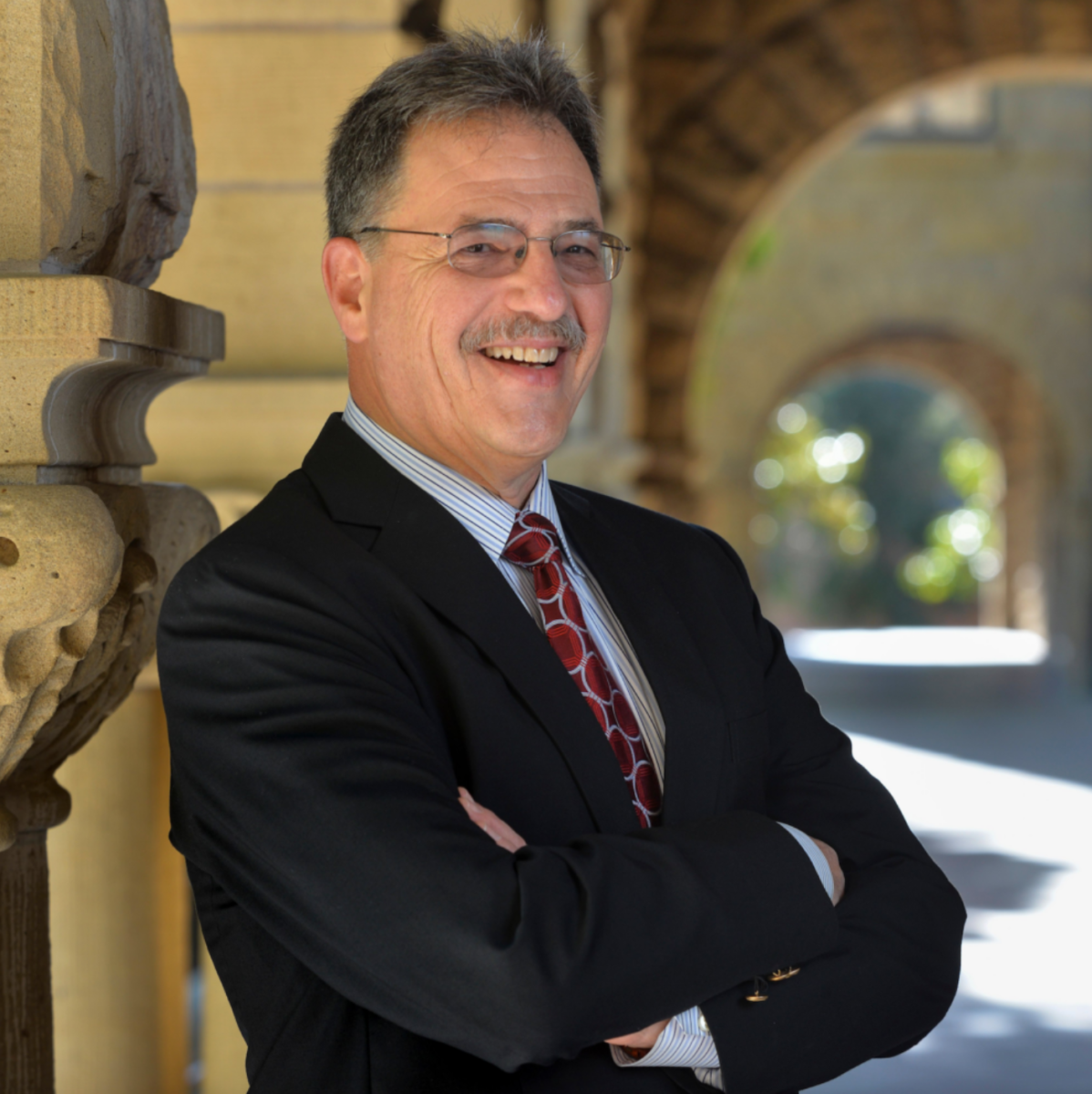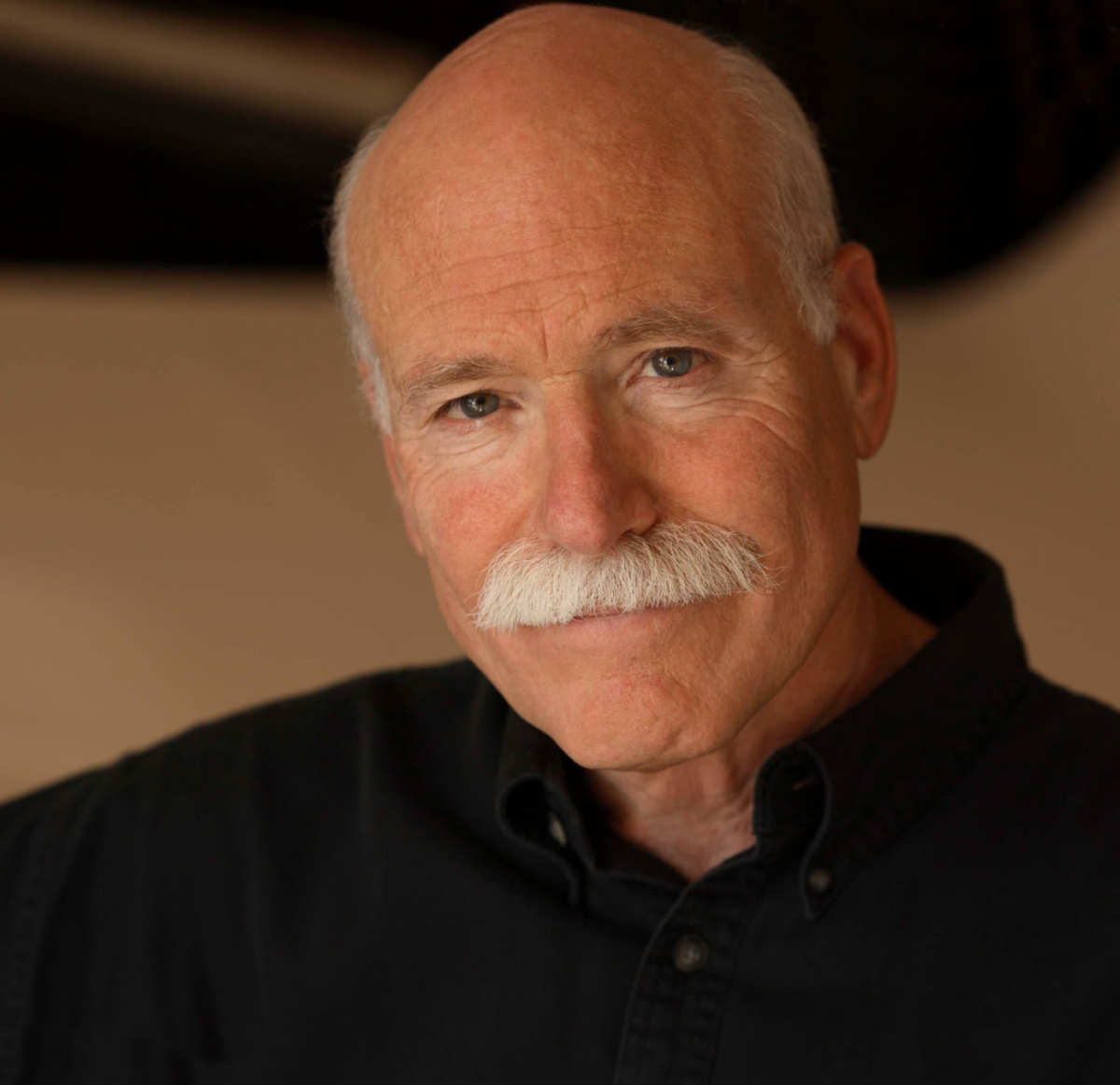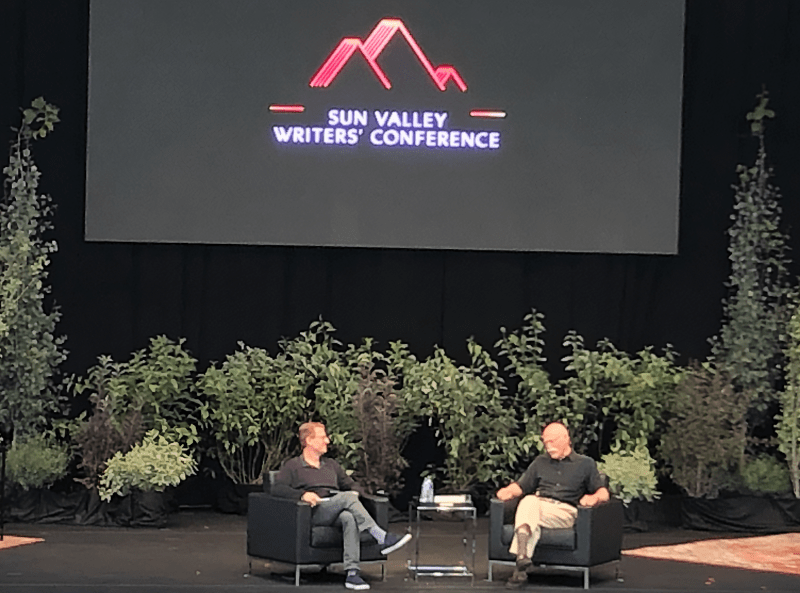On July 17-20, four award-winning Stanford authors joined dozens of other acclaimed writers from across the nation at the Sun Valley Writers’ Conference entitled Reflections on a Changing World in Sun Valley, Idaho. At the sold-out conference which offered free public webcasts, Stanford authors Larry Diamond, David Eagleman, Sheri Fink and Tobias Wolff discussed their work as well as their insights and concerns about major issues of our time with the hundreds of readers and writers in attendance.
This article is the first in a two-part series about prominent Stanford authors who spoke at the Conference.

Larry Diamond: The Global Wave of Authoritarianism and How to Counter It
Stanford political science professor and Freeman Spogli Institute and Hoover Institution fellow Larry Diamond ’75 M.A. ’78 Ph.D. ’80 recently shared his thoughts on the global wave of authoritarianism, which he contends has “gathered momentum and has come to pose a real challenge to the future of freedom in the United States.”
Despite his efforts to remain sanguine, Diamond presented a troubling view of global political affairs at the conference: “There is no doubt that we are in a period of democratic backsliding,” he said.
“One of the things that’s been so sobering to me as a political scientist is that every type of regime in the world is moving in the wrong direction,” Diamond continued. “The liberal democracies are all experiencing severe deterioration. They’re under assault.”
Trends such as deteriorating rule of law, increasing polarization and authoritarian resurgence point to a deepening democratic recession, according to Diamond. Diamond also presented research by Freedom House — a non-profit organization that monitors democracy around the world — that showed that the period between 2016 to 2020 was the first five-year period since 1975 when more countries moved away from, rather than towards, democracy.
The author of “Ill Winds: Saving Democracy from Russian Rage, Chinese Ambition and American Complacency” said that dictators worldwide feel emboldened by the changing political climate. Diamond highlighted authoritarian trends in Brazil, Poland, India, Turkey, Bangladesh, Cambodia and the Philippines as examples of the global retreat from democracy. Additionally, according to Diamond, “new variants” of old-fashioned dictatorships in Venezuela, China, Russia, Egypt and Saudi Arabia, for example, are becoming ever more ruthless.
“We need to figure out how to turn the historical tide,” he said.
Above and beyond Diamond’s observations about what he characterizes as a global democratic recession, his greatest level of concern is reserved for the United States. In an interview with The Daily, Diamond said recent developments constitute assaults on the structural underpinnings of U.S. democracy.
U.S. election officials have said the 2020 election was the most secure in history, but since then, political officials — mostly Republicans — have mobilized to restrict voting by limiting voter access and to politicize voter administration by taking control of local city councils and state legislatures. State legislators are being enabled to pass what many legal experts and experts on democracy view as voter suppression laws, according to Diamond. “The laws that are being passed now, that are hijacking the process and potentially politicizing the process of professional election administration, are even much more anti-democratic and worrisome,” Diamond said.
“We face a real danger that democracy could have a heart attack in the electoral process in 2024,” Diamond added. He expressed concern about threats to the future survival of American democracy in the upcoming 2024 presidential election — threats that he believes will be just as serious as those the U.S. faced in 2020.
Nevertheless, Diamond made room for optimism, calling the present moment “a very creative time in American politics.” Grassroots efforts, modernization of voting equipment and deliberative democracy polling techniques are some of the key areas of opportunity that Diamond highlighted to strengthen and protect democracy.
Diamond was also enthusiastic about ranked-choice voting — a system currently in use in municipalities in New York, Alaska and Maine — to create a more moderate voter base. According to Diamond, ranked-choice voting would make elections more competitive and inclusive, along with giving voters more choice and helping make room for other parties outside of the Democrat-Republican “duopoly” — a phenomenon he considers “very unhealthy for democracy” due to its polarizing impact.
Efforts to increase transparency in lobbying and campaign finance, empower small donors and reform the electoral process are positive signs, according to Diamond. He sees a lot of energy “bubbling up” but added that people will have to mobilize their efforts to see true impact.
“The political class is not going to give it to them on a platter,” he said. “They’re going to have to work for it.”
Diamond offered some parting advice for students and professors at Stanford and across the U.S. whom he hopes will build bridges to some element of the American electorate: “The way to turn back populism is not to deepen polarization, but to try to transcend it.”
Concerned but hopeful, Diamond wanted young people to know that the U.S. needs the collaboration of “smart people from diverse parties and points of view” to galvanize their efforts in the interest of saving American democracy.
“If we lose an election to, or allow an election to be stolen by, a candidate who has no use for democracy, it could well mean the end of American democracy,” Diamond said.

Tobias Wolff: The Art of the Story
Professor emeritus of English Tobias Wolff M.A. ’78 discussed his childhood, family, schooling and experience in the military and the influences these had on his approach to storytelling and memoir.
“We come to know ourselves, and even define ourselves, by the story and stories that we tell about ourselves, that we decide is our story, and that is a lifelong process,” Wolff said at his presentation. “We are all storytellers.”
Wolff’s memoirs “This Boy’s Life” and “In the Pharaoh’s Army” are critically acclaimed stories of courage and resilience. The National Book Award winner and Guggenheim Fellow explained his approach to the craft: “I try to write something that I think I would like to read.”
Wolff described a writing process that includes a lot of rewriting. “I don’t really know what other people might want to read,” he acknowledged. “And I tend to be rather exploratory in my method.” Wolff explained that he begins each story without deciding where the story is going to go from the beginning, and so the novel he is finishing now is very different from how Wolff had originally conceived it.
Wolff described the ephemeral gift of inspiration. “I very much have a sense of writing as a gift, and yet I experience it, when it’s working, as something that is being given to me, rather than something I’m forcing,” Wolff said, also acknowledged the importance of discipline: “I have to be at the desk in order to be hospitable to it, if this gift is going to be given.”
In an interview with The Daily, Wolff described the unifying power of storytelling.
“We’re facing a kind of crisis of belief,” he said. “We seem to inhabit different realities in this country, and that is creating frictions that are going to become very volatile, as they already have.”
Wolff shared his belief that storytelling has a role in addressing these problems. “Perhaps the greatest thing about stories is that they invite us to step out of ourselves and see life through someone else’s eyes,” Wolff explained.
Wolff sees stories as opening up the reality of other people. “When we see others as our opponents, we strip them of their humanity,” Wolff said. “Stories have a way of returning us to our sense of humanity.”
In contrast to the humanizing effect of stories, Wolff warned against the dehumanizing effect of smartphones, and counseled young people to avoid the overwhelming lure of technology. Wolff described the addictive nature of the smartphone as “a great challenge to reflection, contemplation and the development of natural human relations between people.” He advised students to spend as much time as possible away from the screen in order to enjoy authentic experiences: “meeting, thinking, just actually being with friends.”
In a world in which so many suffer from media overload, Wolff offered advice about how to slow down and how to be a better reader. “The real key is education,” he said. Wolff emphasized the importance of thinking critically and developing ways of approaching “this flood of information that’s constantly coming at us,” as well as the importance of testing that information against our own lived experience.
Wolff told The Daily that he would counsel young people to be patient with themselves. “We have developed an expectation of ourselves that things should happen very quickly, and that we should be experts very quickly,” Wolff said.
“It can lead to a sense of discouragement, even failure, when you really haven’t given yourself room to make mistakes,” Wolff continued.
“We should cut ourselves some slack,” he said. “We have time to do that.”
